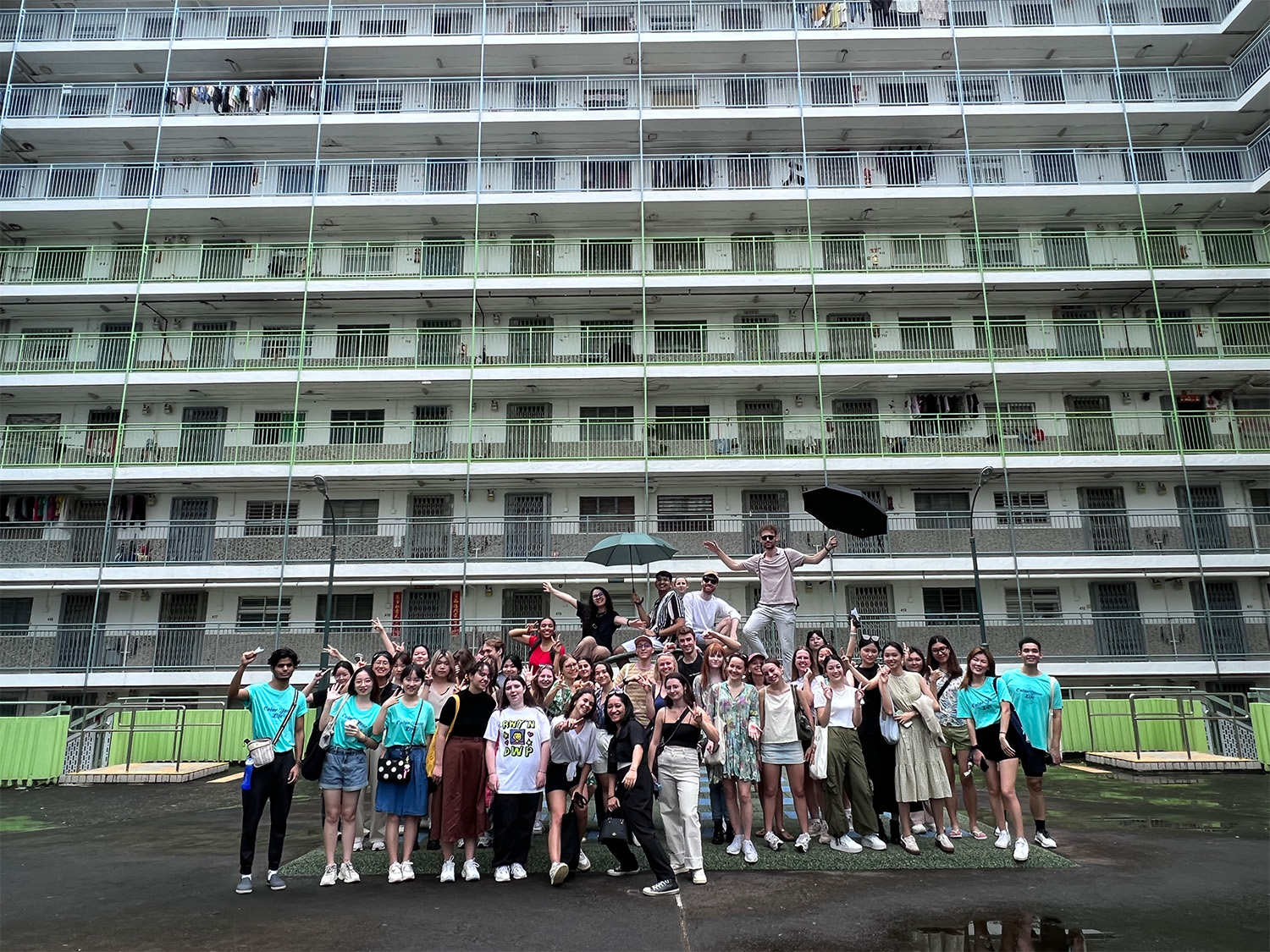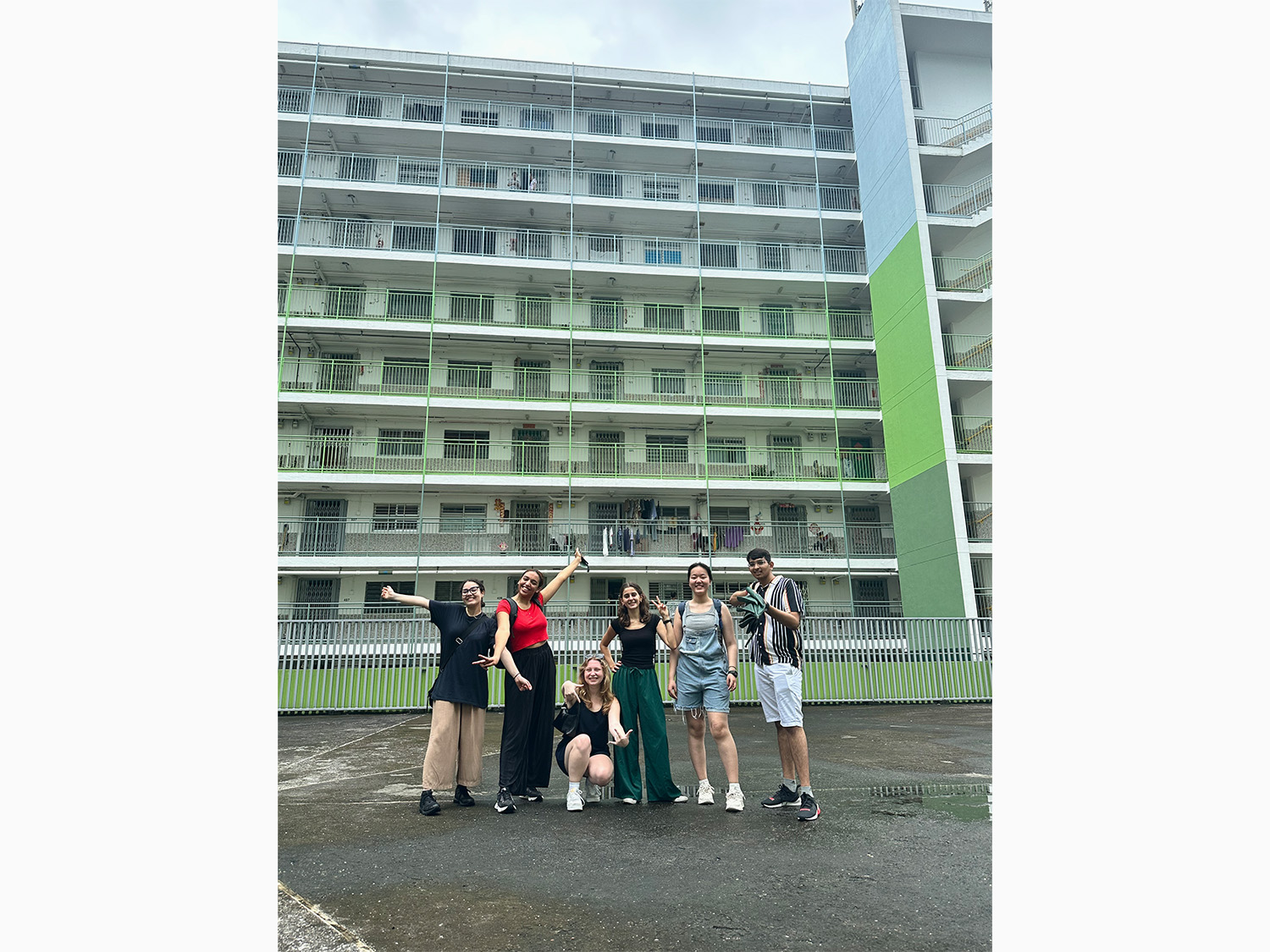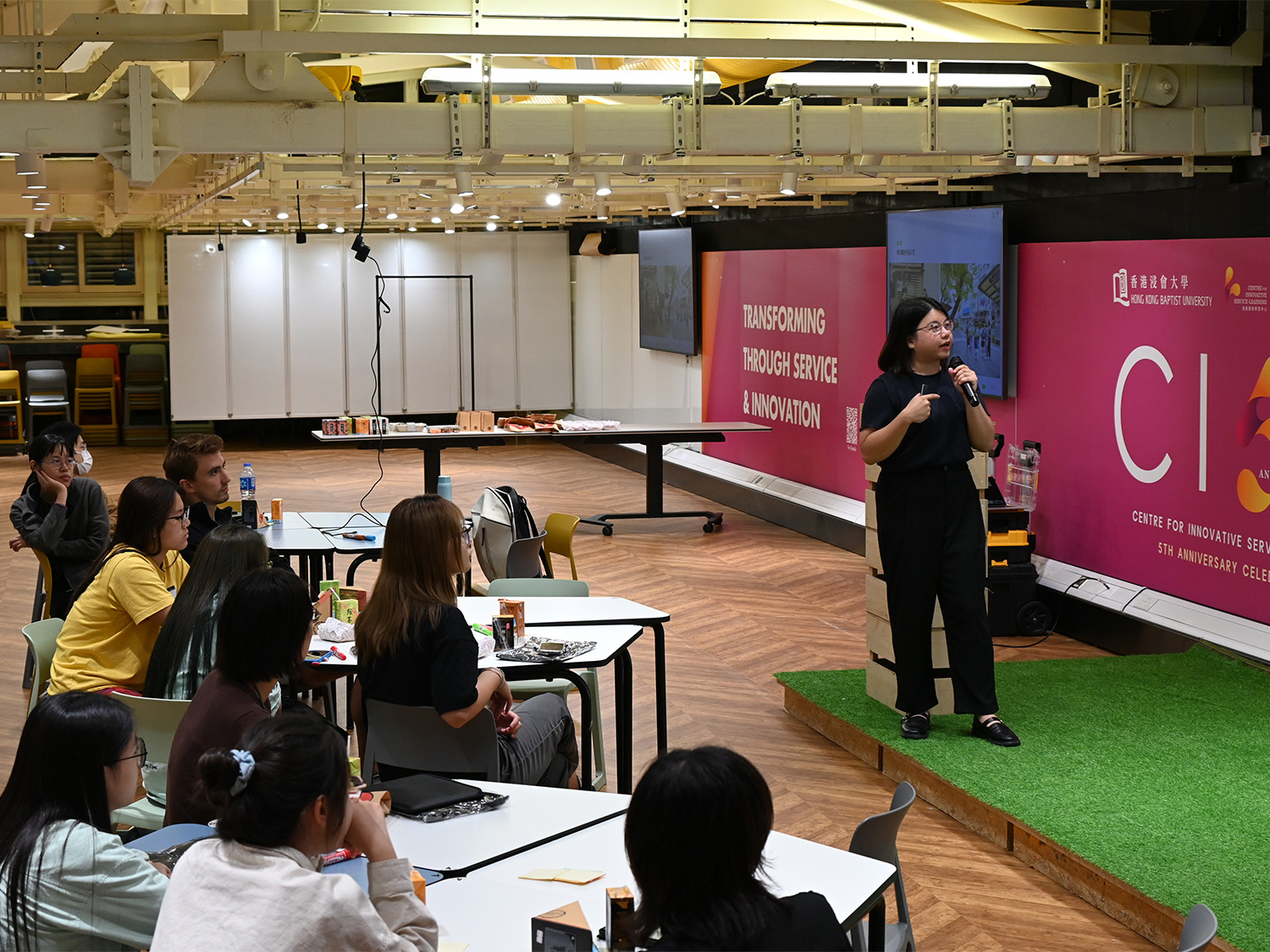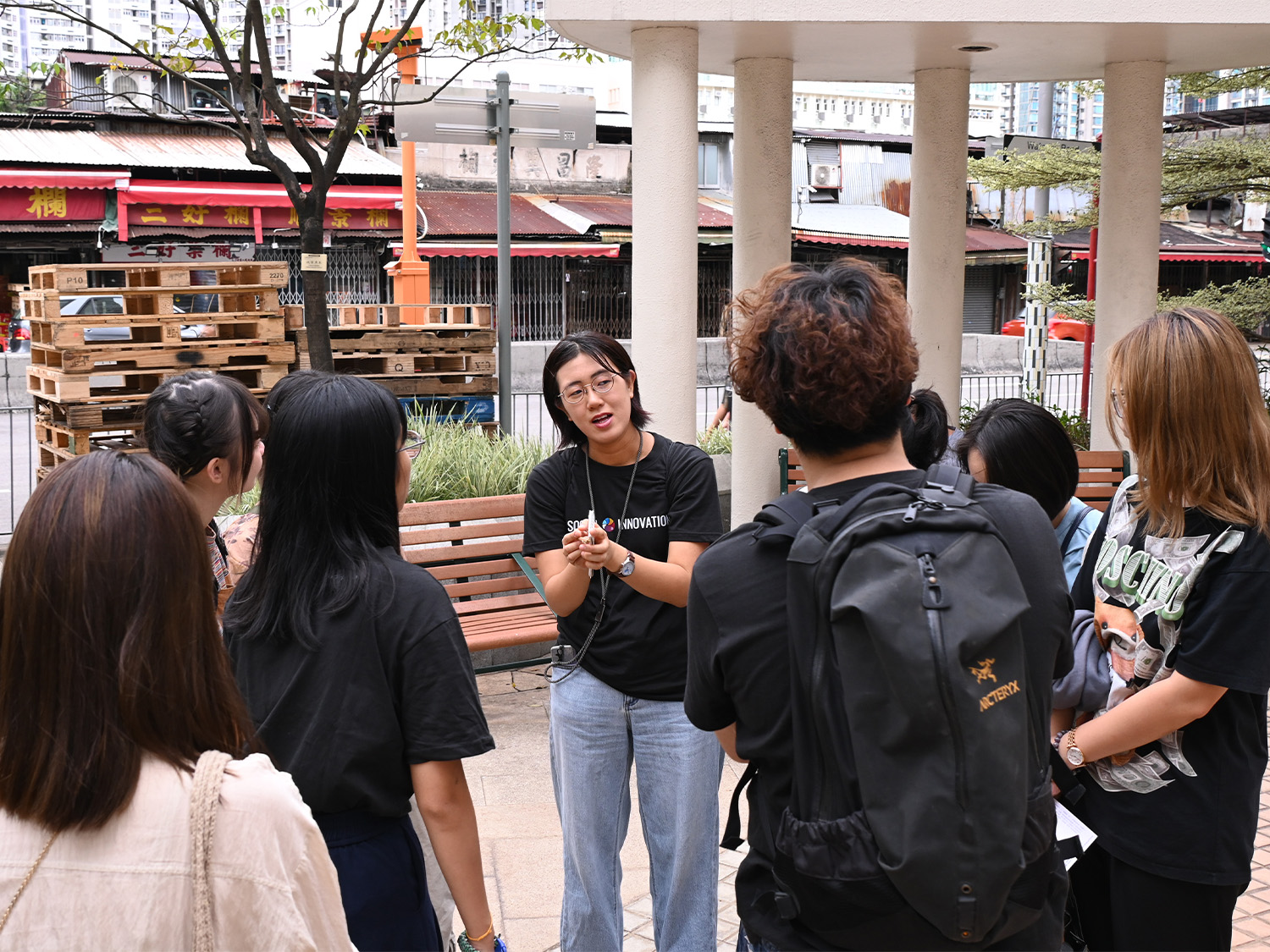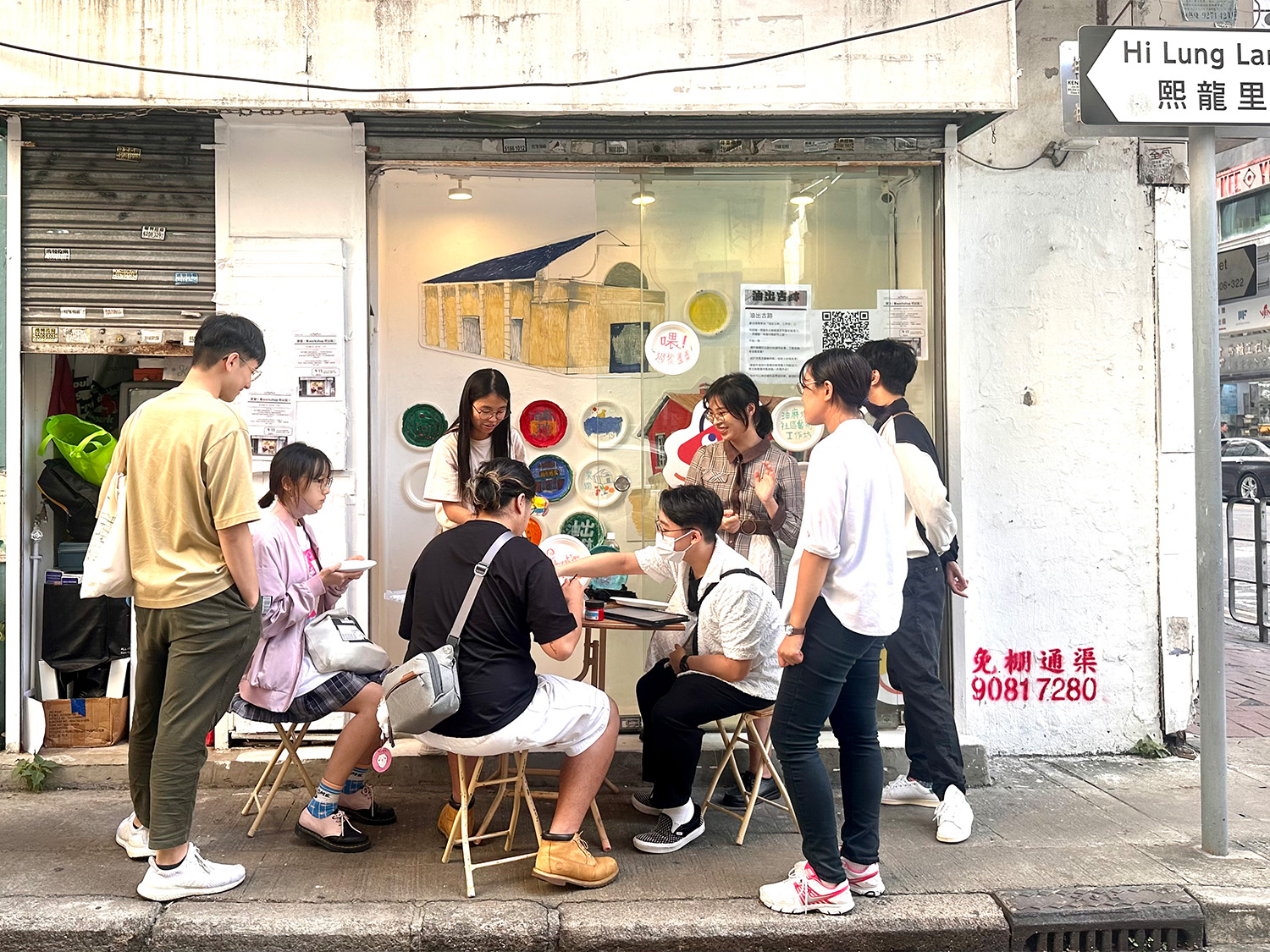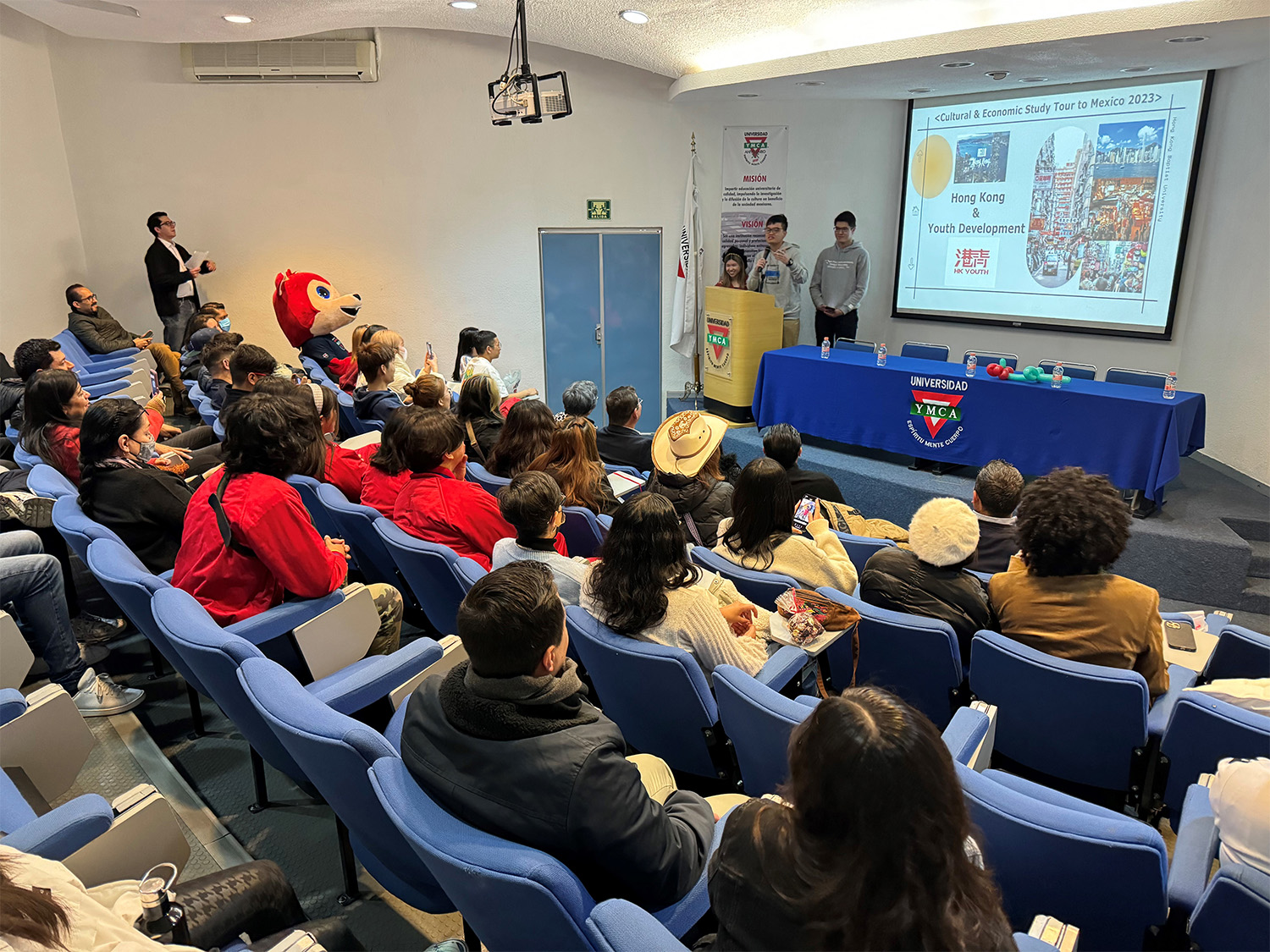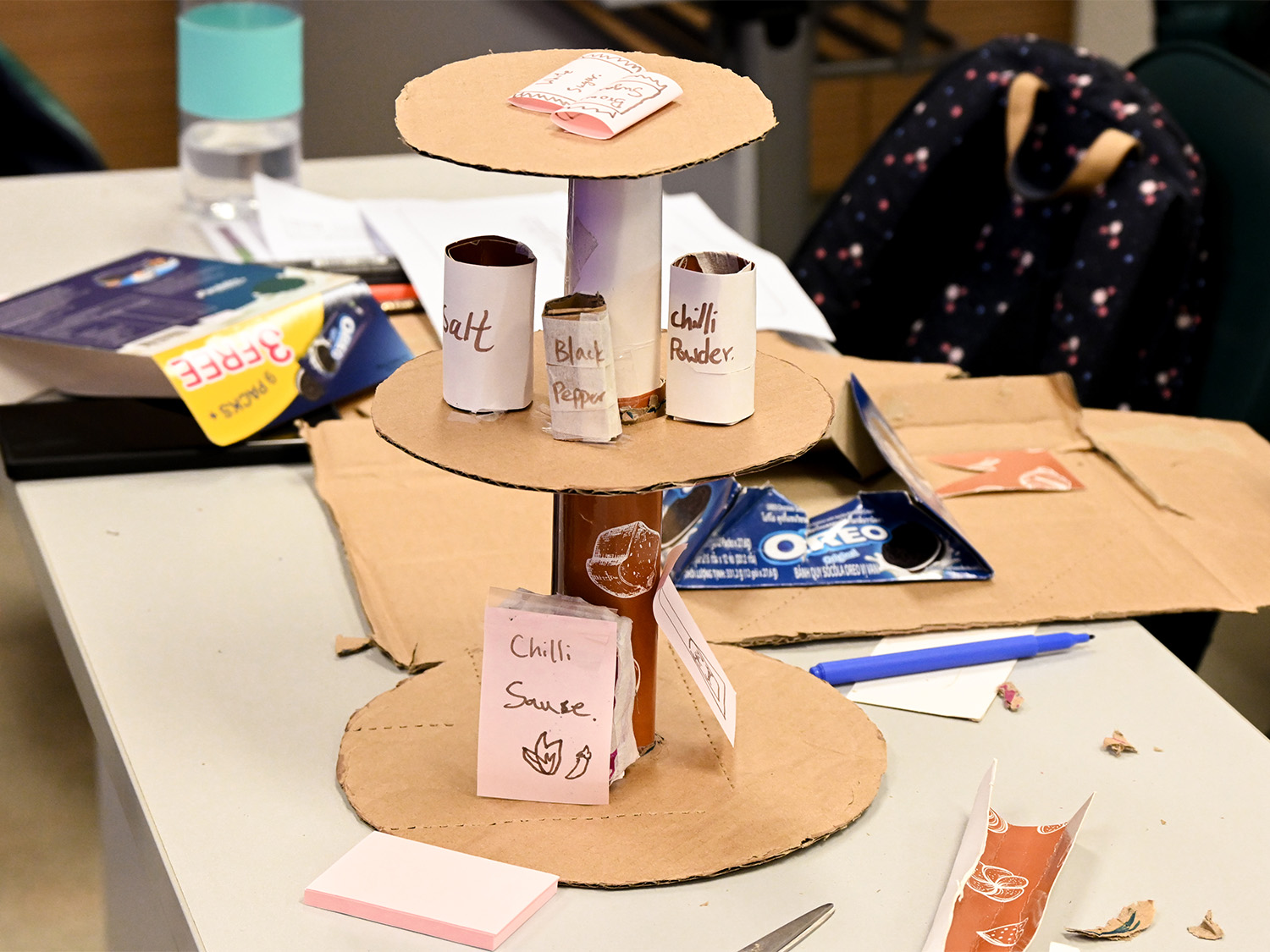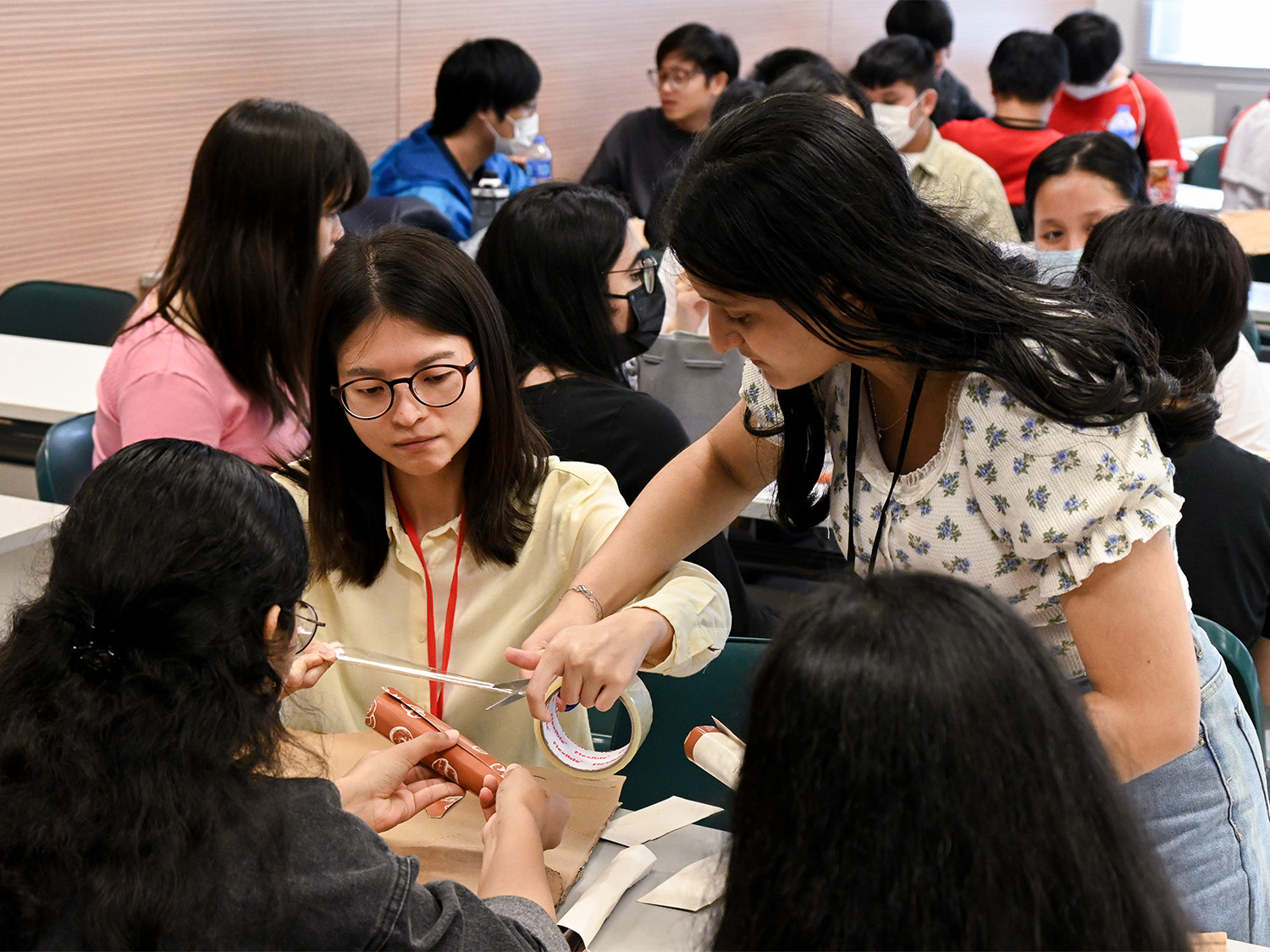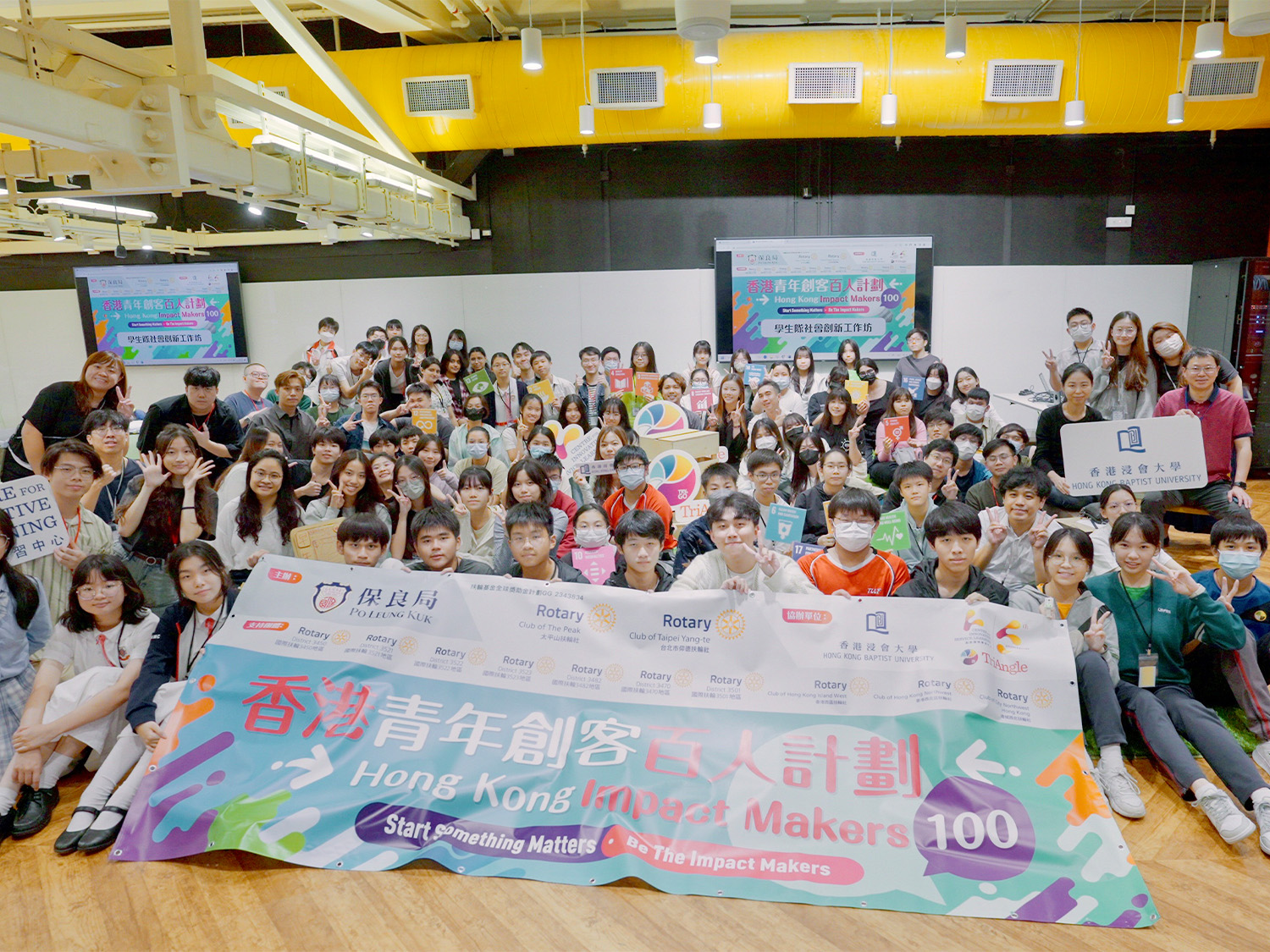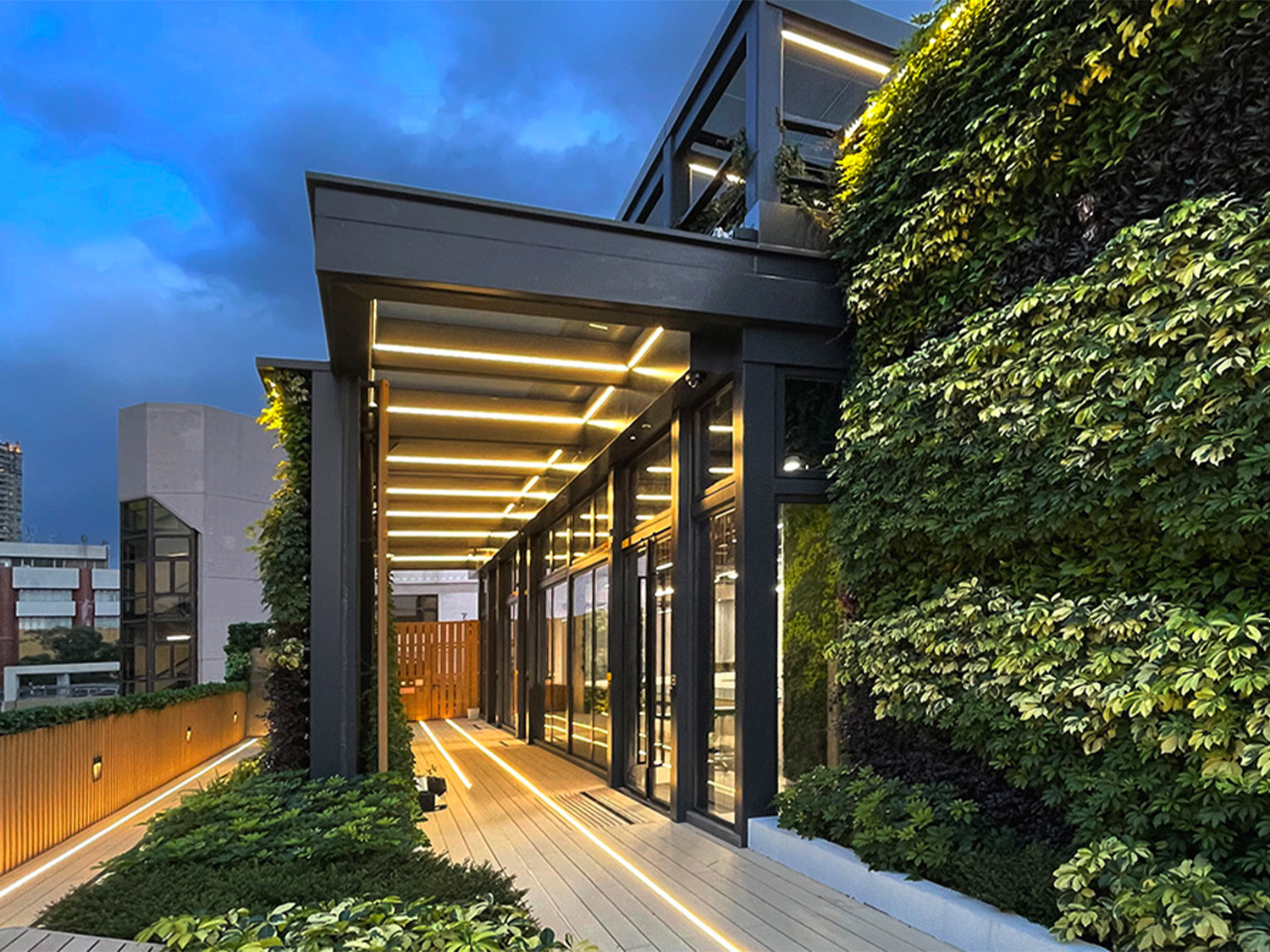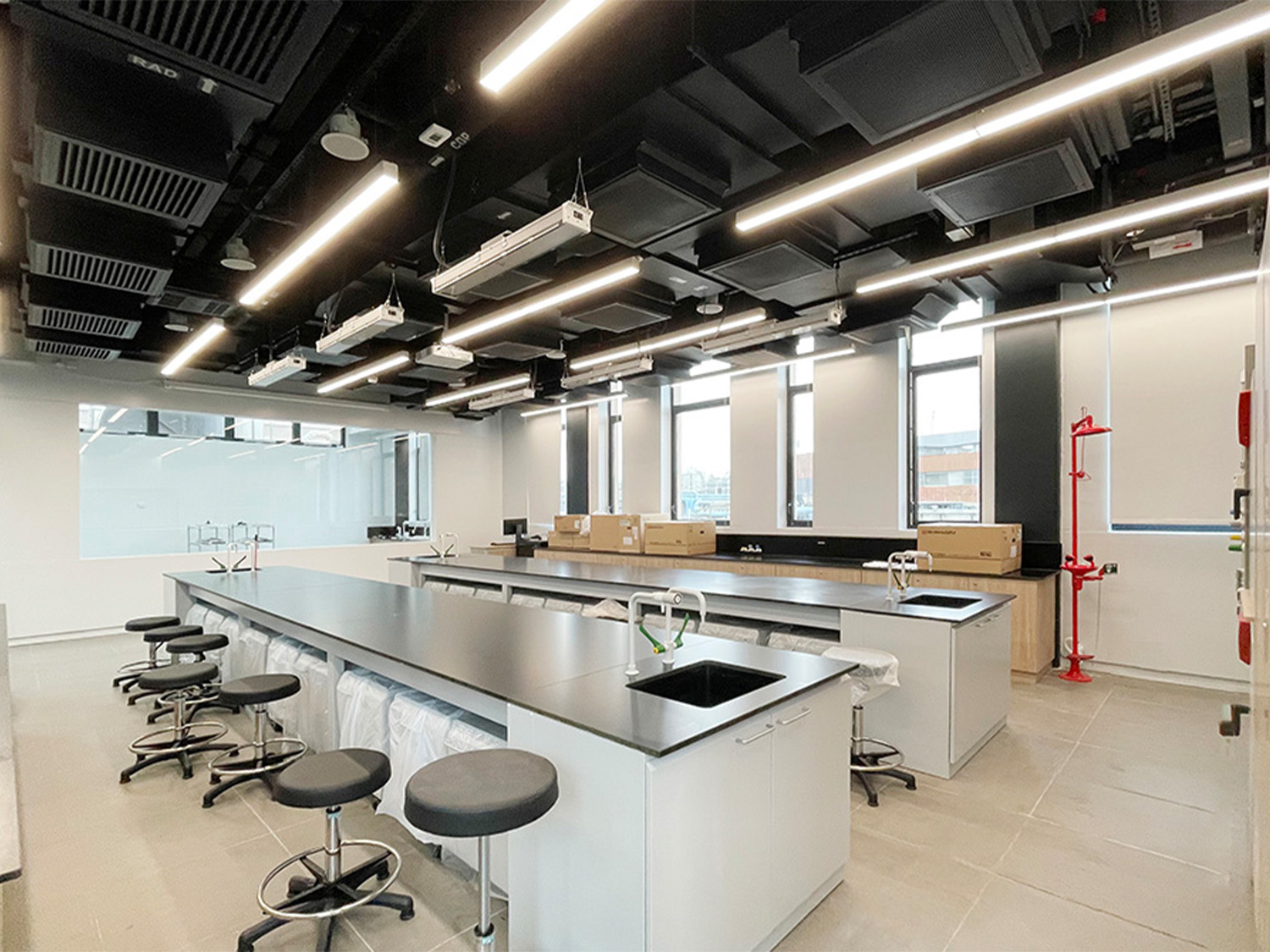SDG 11: Sustainable Cities and Communities
Students investigated the Hong Kong Government's policies and programmes relating to solid waste management and climate disaster preparedness in the General Education capstone course "Taking a Stand", taught by Dr Benedict Rowlett and Dr Simon Wang. This hands-on approach enabled them to critically analyse the challenges of urban sustainability. By engaging with real-world issues, students developed a profound understanding of sustainable urban development. The course promoted active citizenship, encouraging students to advocate for improved waste management practices and enhanced climate resilience within their communities. This practical engagement cultivated a sense of responsibility towards creating more sustainable and resilient urban environments.
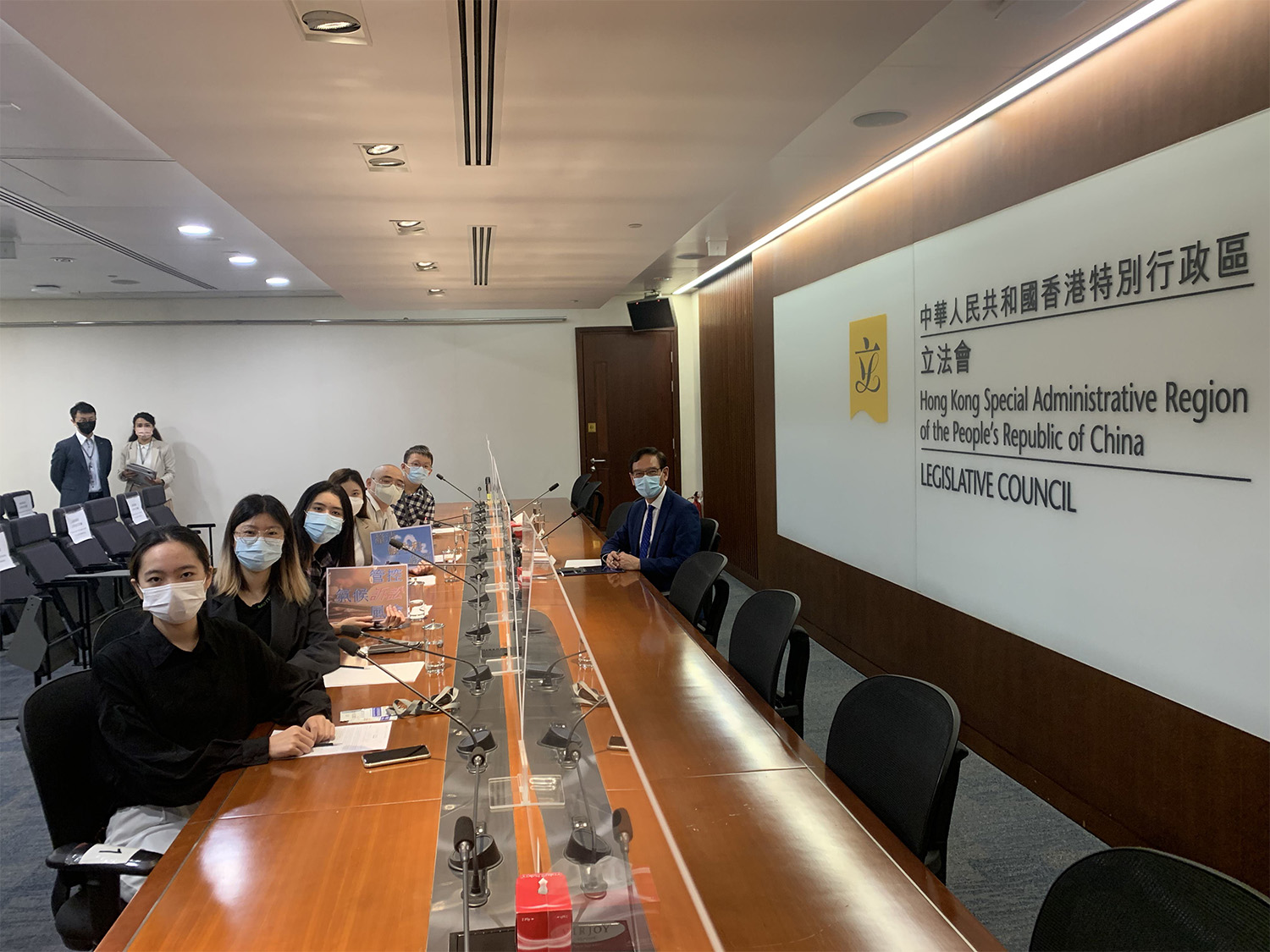

Making cities and human settlements inclusive, safe, resilient, and sustainable
The International Office led incoming exchange students into the heart of Nam Shan Estate, a living archive of Hong Kong’s history. Engaging with the local community and tasting signature dishes at Cha Chaan Tengs, they immersed themselves in the authentic daily life of residents and tapped into the estate’s enduring spirit. Purpose-built, these buildings have sheltered generations, and the ‘new slab’ architecture stands as a hallmark of resilience. This experience taught students that true sustainability lies not only in creating spaces and structures that last but also in fostering deeper human connections and building communities that honour a legacy of inclusiveness and cultural continuity.
Meeting innovation in Yau Ma Tei's back alleys
The Social Innovation Makers (SIM), organised by TriAngle of the Centre for Innovative Service-Learning, aimed to cultivate a spirit of social innovation among students, motivating them to innovate solutions to tackle societal challenges. This year's highlight, "The Back Alley Tales," took place in Yau Ma Tei's back alleys, guiding participants to uncover and address the community's needs. The programme nurtured four student teams, each with a specialised focus: “Historical Conservation through Painting” aimed at enhancing heritage awareness; "Ma Dei 1 Gen" connected residents through art and calligraphy; "Renewable Future" focused on upcycling discarded materials; and "Scenario-based Cantonese Learning Community for Adults" fostered inclusivity through language. With the opportunity of being "One-Week Shopkeepers", students presented their projects and engaged in dialogue with the locals on community issues at the PRÉCÉDÉE Artspace in Yau Ma Tei.
Bridging cultures, empowering futures
The Cultural & Economic Study Tour to Mexico 2023, organised by the Leadership Qualities Centre, was a transformative journey that brought young minds together across continents. Students eagerly embraced Mexico's rich culture and traditions. Through engaging conversations with Mexican youth and families, the students gained a deeper understanding of the country's history and development. Exploring iconic landmarks like Museo Nacional de Antropología expanded their global perspectives, and opened their eyes to Mexico’s preservation of cultural heritage. Students from Hong Kong and Mexico City also participated in a Youth Forum and presented some of the prominent issues in their respective regions, with homeownership being a common concern for young people in both cities. They all called for more government intervention to make affordable housing accessible for residents.
Empowering youth changemakers with social innovation mindsets
In collaboration with Po Leung Kuk Children and Youth Services, TriAngle of the Centre for Innovative Service-Learning co-organised the "Hong Kong Impact Makers 100" programme. This initiative provided over 115 secondary school students with workshops on design thinking and social innovation from October 2023 to April 2024. The students engaged in creating innovative solutions in response to the needs of children from low-income families, the elderly, people with disabilities, and environmental concerns, transforming their ideas into actions. The programme culminated in a closing ceremony and a public exhibition, which not only highlighted the students' impactful work but also raised awareness of pressing social issues, fostering collective efforts to create a sustainable community.
Blending of Chinese and Western cultures through art tech
HKBU hosted its Annual Gala Concert in April 2024, blending Chinese and Western cultures with art tech under the theme “East West Encounters”. The event featured the Dance of the Yao People, seamlessly integrating AI-generated virtual dancers inspired by the Yao ethnic group. Renowned violinist Ms Yao Jue mesmerised the audience with her performance of Butterfly Lovers. Led by Professor Johnny M Poon, the orchestra harmonised diverse art forms and technology, delivering an immersive and innovative experience to the audiences, who included not only the HKBU community but also external guests. A specially curated online version of the concert was also made available after the event on various online platforms for public enjoyment.
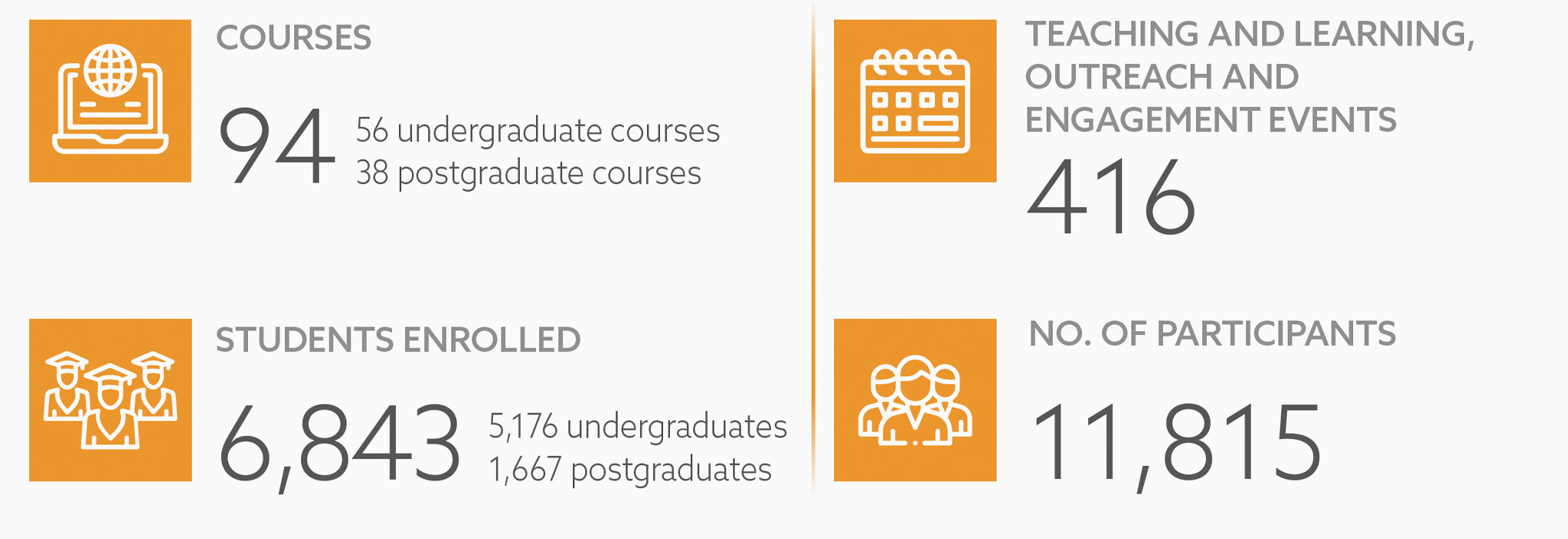

Department of History
Author: Chi Man KWONG
Through his GIS-based interactive maps, Dr Kwong’s research transformed the preservation, curation, and commemoration of built heritages in Hong Kong, particularly those related to the Second World War. By locating over 500 wartime features, he worked with authorities to curate these sites including those that could be found in Country Parks, saving conservation costs and preventing vandalism. This ongoing project also promotes peace education by providing tangible connections to the city's wartime history, preserving cultural heritage through historical documentation, and protecting the natural environment by integrating the historical and ecological elements. The project’s digital approach, with the use of interactive maps and online platforms, also reduces the need for physical materials, minimising environmental impact and enhancing the accessibility historical information. The project helps Hong Kong strive for the SDG 11 by providing a sustainable digital solution in heritage and cultural preservation.
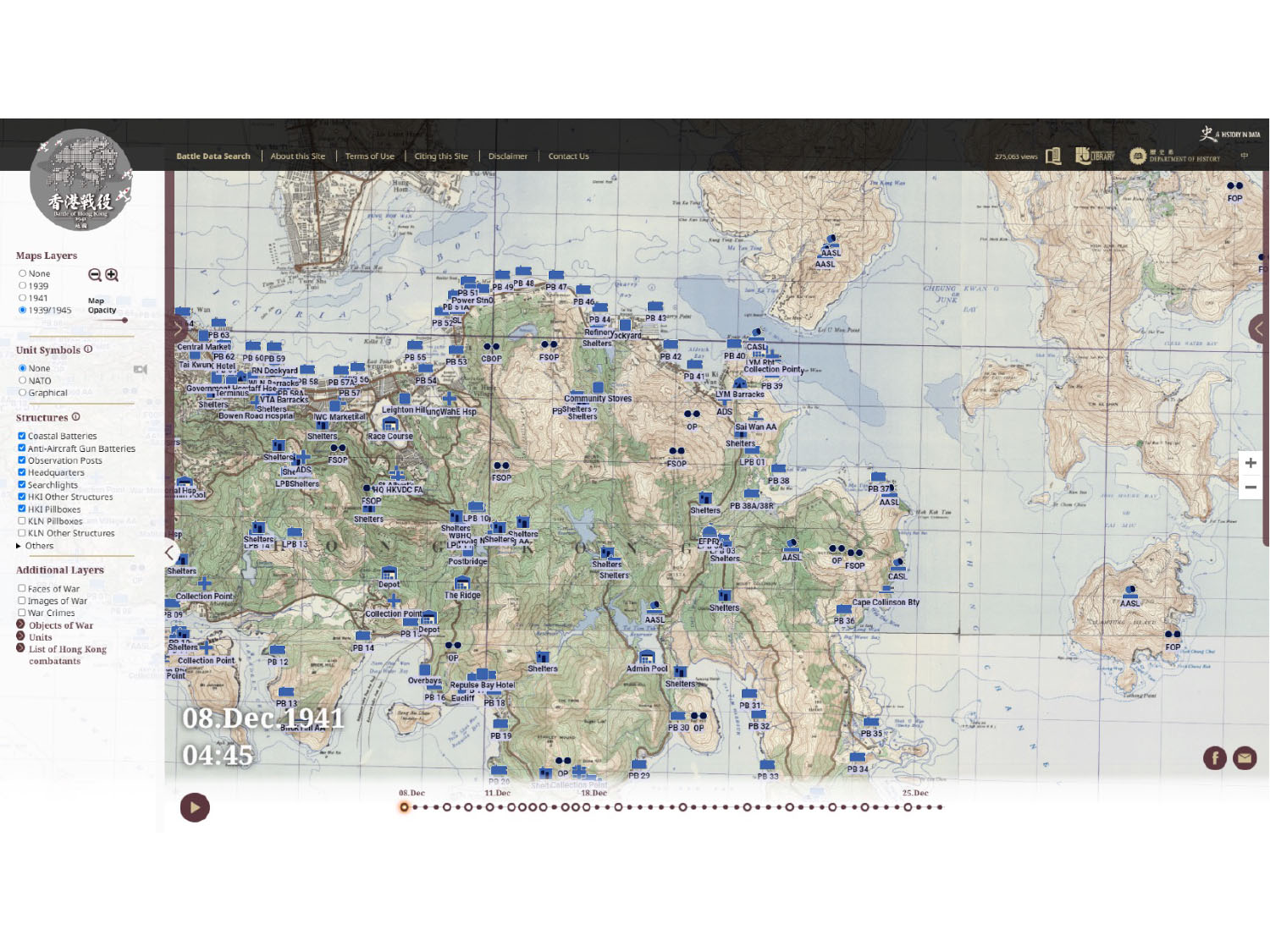

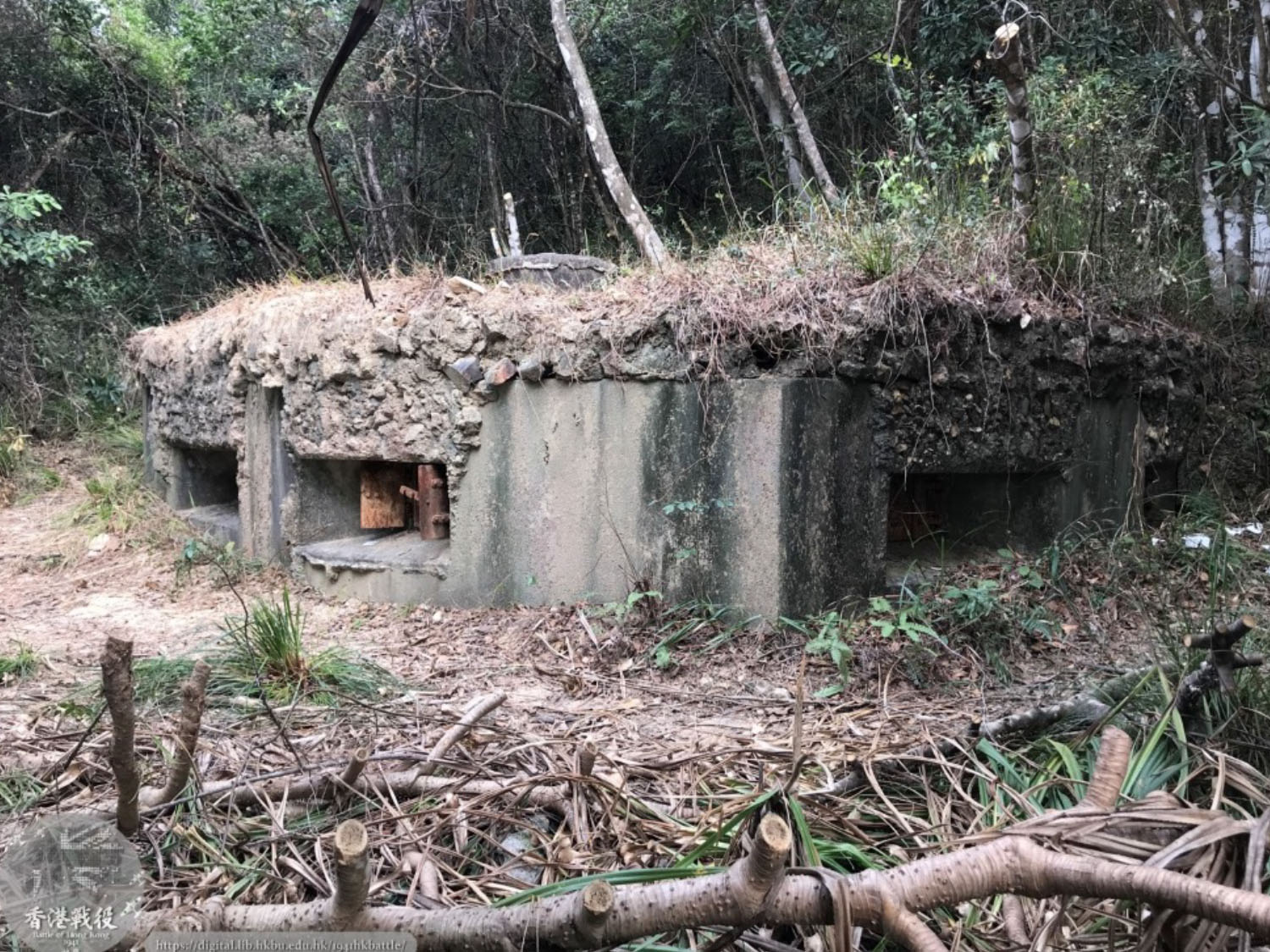

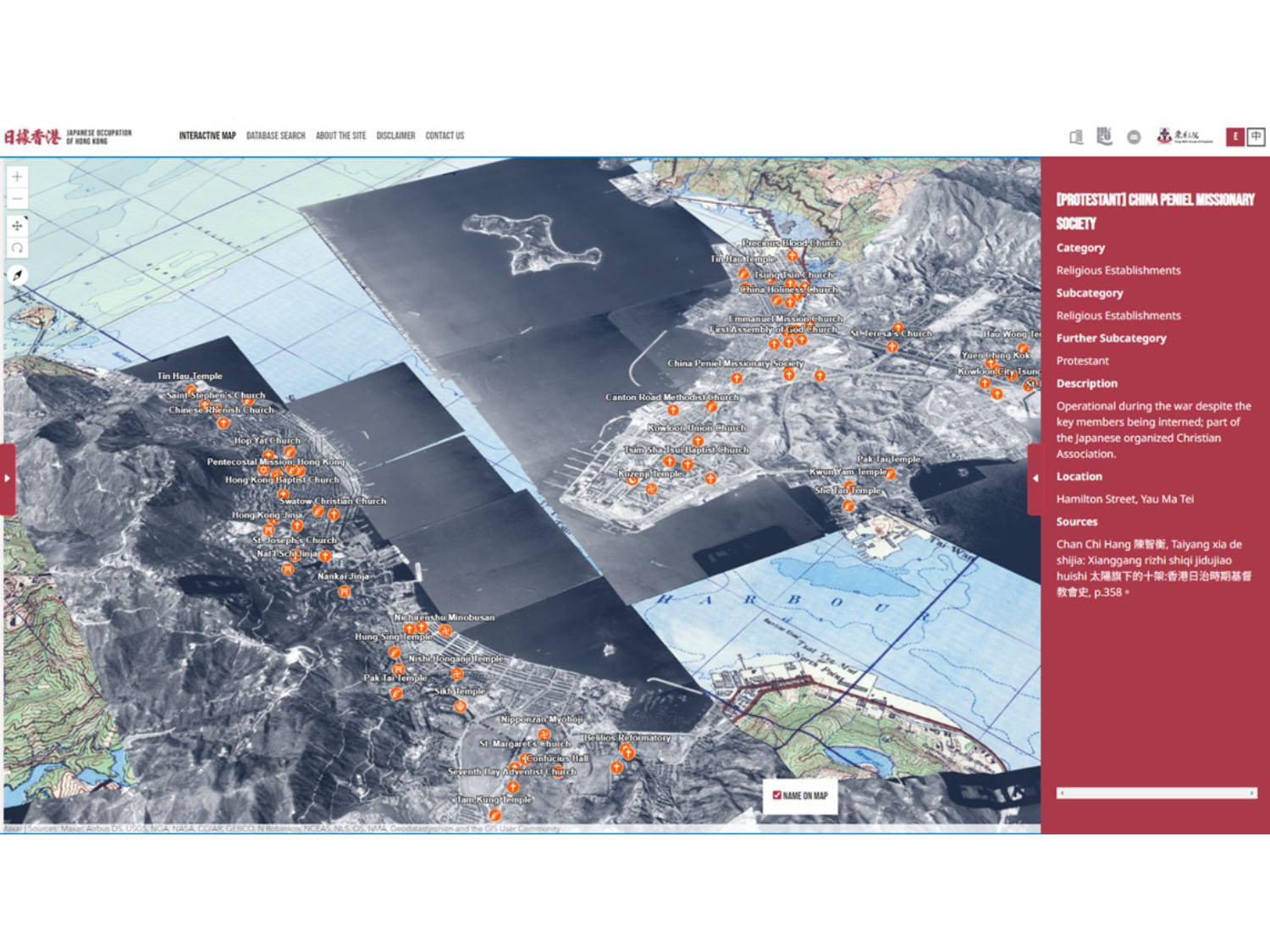

Art Futures 2023 Awardees Exhibition - Outstanding Graduates Awards
Academy of Visual Arts
Author: Man Yee Janet, FONG
Showcasing young talent in East Asia every two years, the Art Futures Awardees Exhibition, which engaged core members from 76 institutions across 31 countries and cities globally, was organised by the University’s Academy of Visual Arts under the School of Creative Arts. It aligns with SDG 11, which seeks to make cities and human settlements inclusive, resilient, and sustainable, with a reach of 110 million. The international exchange of Art Futures 2023 awardees exhibitions and other art events in Hong Kong and Singapore (2024-2025) underscored the cross-cutting nature of urban issues, by promoting sustainable construction-related activities, and fostering art talents as a Human Resource development across both developed and developing countries. These collaborations also contributed to the protection of cultural heritage, while strengthening the social and environmental links between urban, peri-urban, and rural areas where 76 institutions are located, fully supporting SDG 11’s objectives of integrating national and regional development planning and its impact.
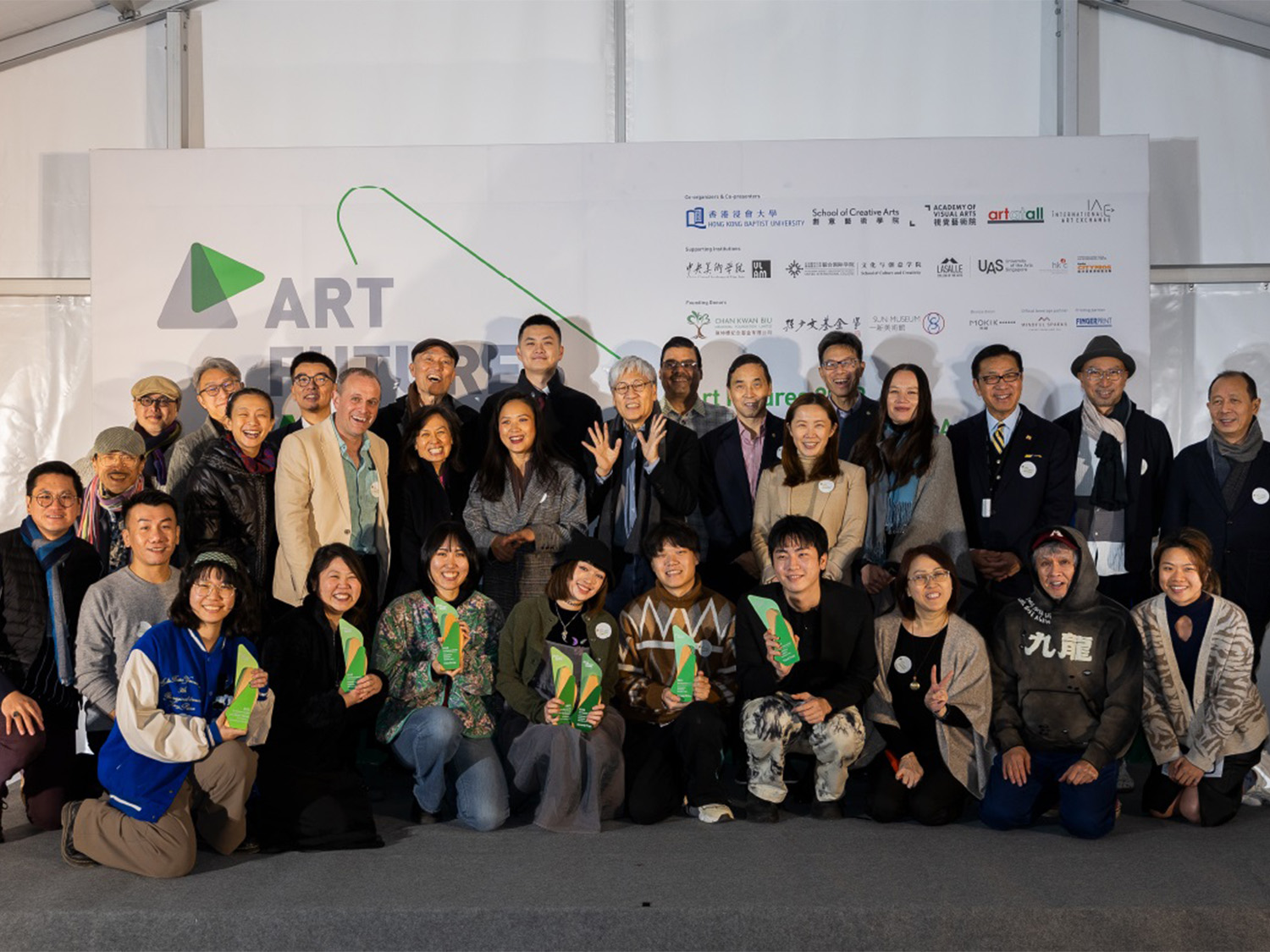

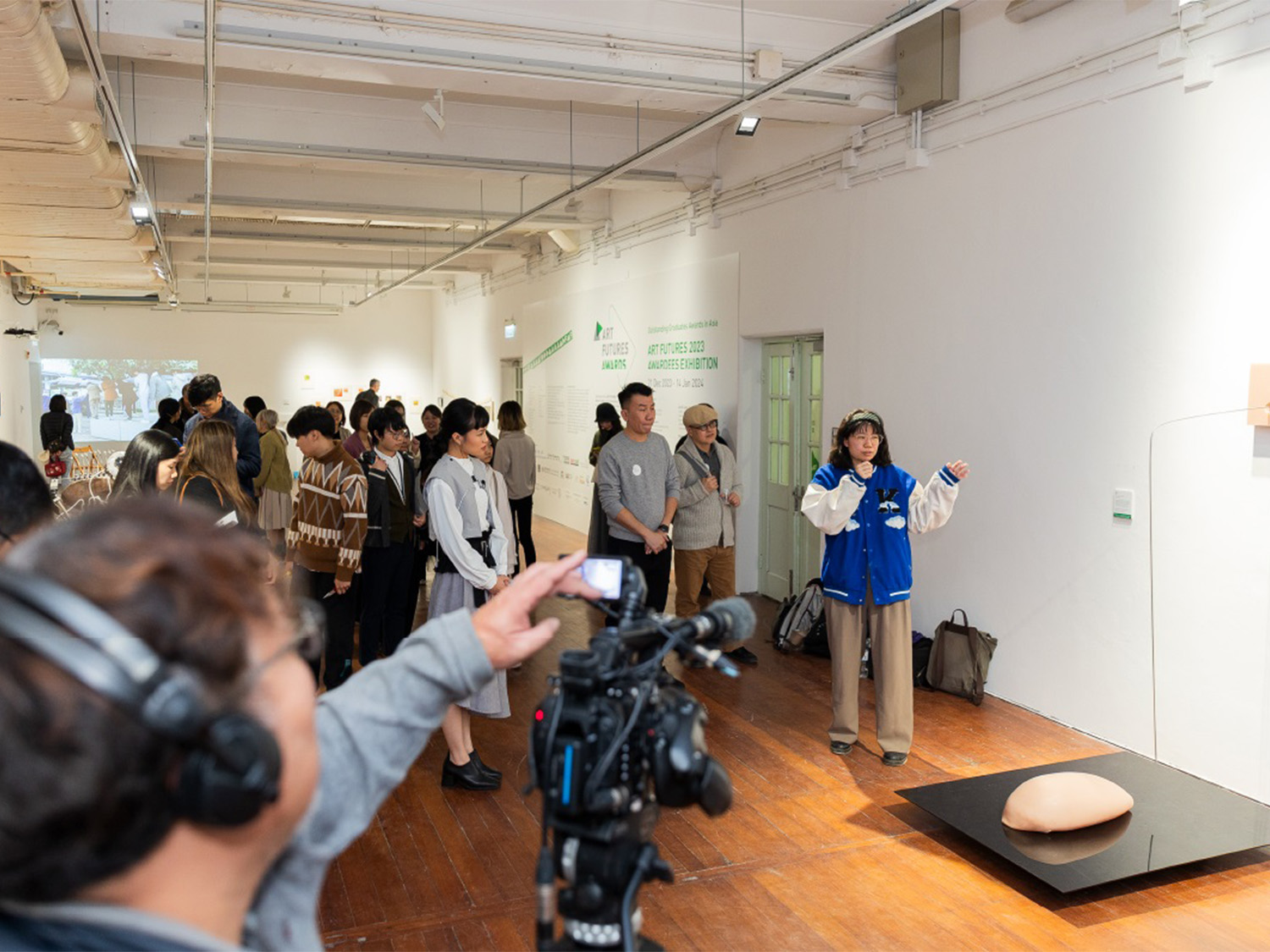

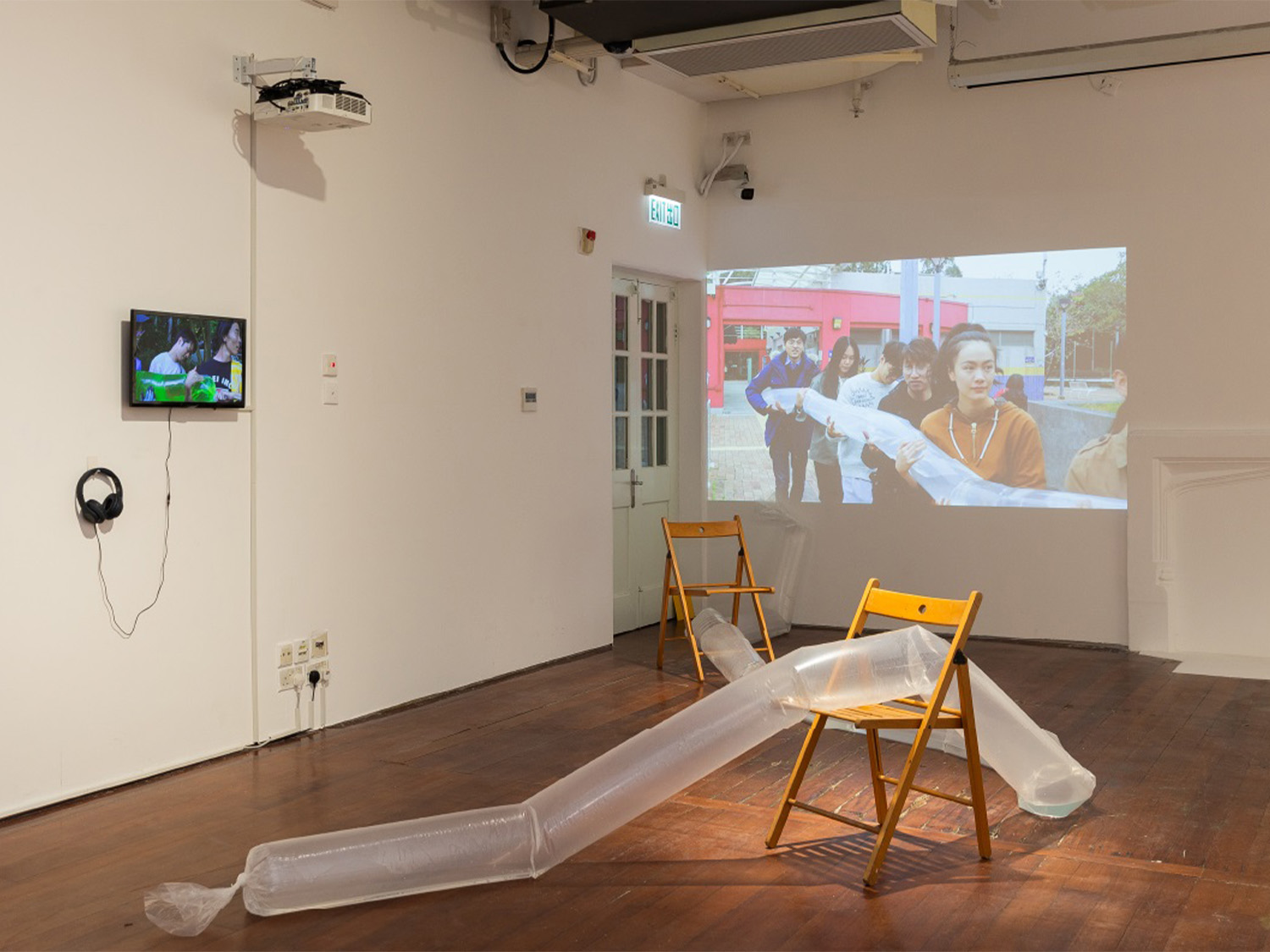

Utility-aware dynamic ridesharing in spatial crowdsourcing
Department of Computer Science
Authors: Yafei LI, Huiling LI, Xin HUANG, Jianliang XU*, Yu HAN, Mingliang XU*
*Corresponding author
This research presented an innovative approach to improving ridesharing services, which is directly relevant to the SDG on Sustainable Cities and Communities. By focusing on utility-aware ride matching (URM), the study addressed key concerns that have hindered the popularity of ridesharing — primarily social comfort and price fairness. The development of a novel algorithm for matching drivers and riders not only promised to enhance the user experience by considering these factors but also contributed to the advancement of sustainable urban transport. Efficient and comfortable ridesharing can reduce the number of vehicles on the road, lower emissions, and contribute to less congested, more environmental friendly cities. The research's success in demonstrating effective and efficient matching on real datasets suggested a practical way forward in making cities more sustainable through improved transportation solutions.
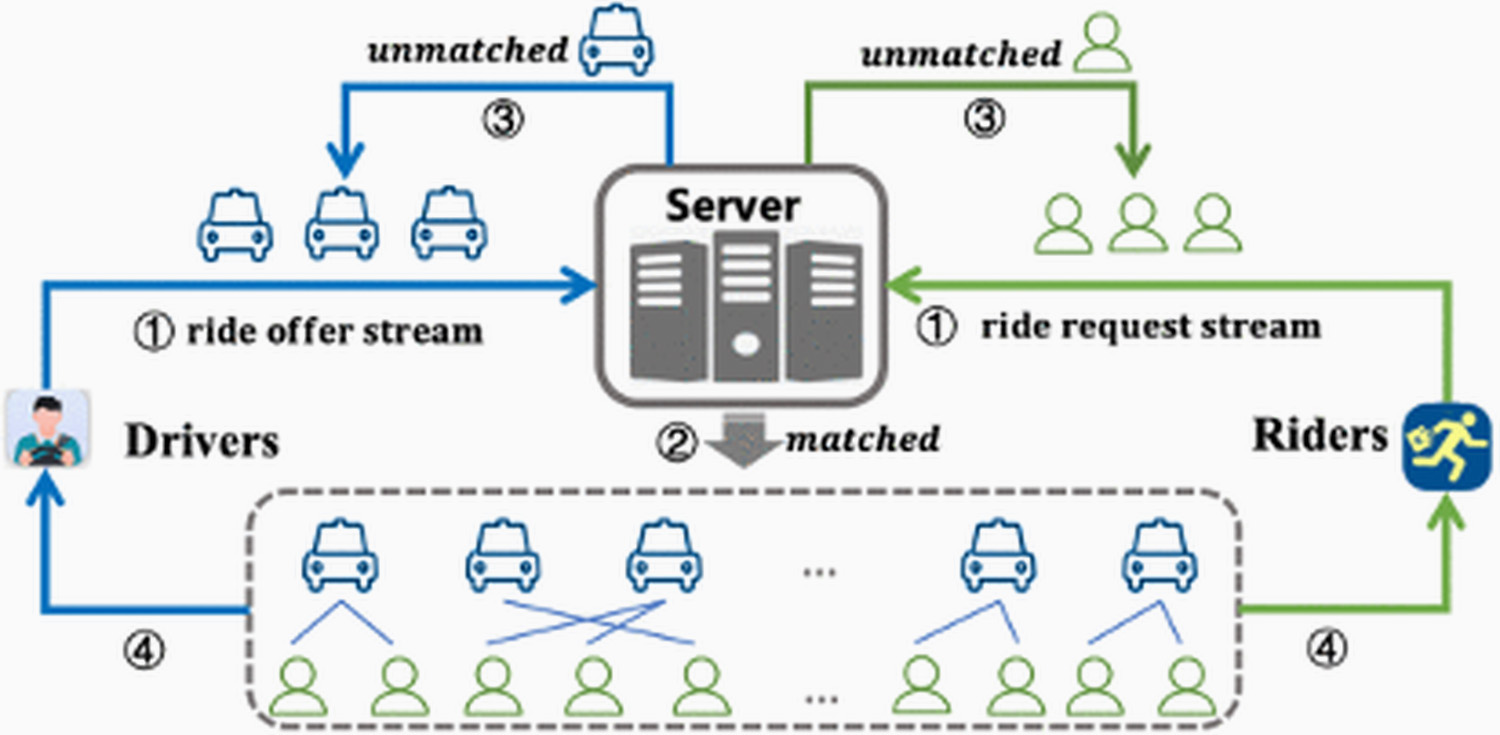

Aligned with the principles of sustainable urban development, the University campus is accessible to the general public, who can access designated indoor and outdoor areas on campus, including the library, cultural heritage sites, and green spaces.
HKBU Library i) General access ii) Access to Special Collections & Archives and European Documentation Centre | i) Open to eligible users including:
ii) Open to the general public |
Cultural heritage sites
| Open to the general public |
| Green spaces including green roofs and gardens on Kowloon Tong Campus | Open to the general public |
Fostering cultural exchange and community engagement
Embracing the vision of becoming "a leading liberal arts University in Asia for the world delivering academic excellence in a caring, creative and global culture", the University provides performance and event venues that serve as vibrant cultural centres for the University and its surrounding community. These spaces encourage the seamless exchange of ideas, diversity of culture, and collaborative efforts, ultimately reinforcing the connection between the University and its community.
- Academic Community Hall
The auditorium, with a seating capacity of 1,346 across two floors, is a versatile space suitable for concerts, musicals, variety shows, ceremonies, religious functions, and seminars. For decades, it has also been the esteemed competition venue for the Hong Kong Schools Music and Speech Festival.
- Tsang Chan Sik Yue Auditorium
With a seating capacity of 400, the auditorium is fully equipped with stage lighting and an audio-visual system as well as a VIP lounge. It serves as a multipurpose venue suitable for conferences, ceremonies, seminars, and a range of performances. In addition, the venue is barrier-free, ensuring accessibility for all.
In the year 2023-24, Academic Community Hall and Tsang Chan Sik Yue Auditorium have shared their facilities with the local community for organising events for 50 days. These events include music and speech competitions, variety shows held by local schools, and conferences and ceremonies held by external education centres. These collaborations aim to foster cultural exchange and community engagement, strengthening the ties between the University and its surrounding neighbourhoods, and contributing to the development of sustainable cities and communities.
Preserving cultural heritage and cultivating creative talents
To preserve cultural heritage and foster the growth of creative talents in Hong Kong, the University has transformed historic buildings on its campuses into distinctive cultural landmarks that serve the arts community and the public. Guided tours are also available for these spaces, providing visitors with a deeper understanding of the historical significance and artistic value of these repurposed buildings.
- Lui Seng Chun
Lui Seng Chun is one of the projects under the Revitalising Historic Buildings Through Partnership Scheme initiated by the Government in 2008. The University was granted the opportunity to preserve and convert the historic building into a Chinese medicine healthcare centre. This project aims to breathe new life into the building while providing valuable community healthcare services.
- Jocky Club Creative Arts Centre
Established in 2008, the Jockey Club Creative Arts Centre (JCCAC) is Hong Kong’s premier artist village and arts centre, converted from a former factory. As a selffinanced registered charity and subsidiary of the University, JCCAC serves as a multidisciplinary arts and cultural venue open to the public, catering to the diverse needs of the arts community.
- Kai Tak Campus
The Kai Tak Campus, formerly the Royal Air Force Officers’ Mess, is a remarkable Grade I historic building showcasing a unique colonial architectural style from the early 20th century. It serves as a venue for public exhibitions, allowing visitors to immerse themselves in the cultural experiences offered by the University.
Founded in 2005, the HKBU Academy of Visual Arts (AVA) is housed within this iconic site, providing an immersive environment for teaching, learning, and showcasing the vibrant world of visual arts, with facilities including the Centre for Research and Development in Visual Arts and various studios and exhibition spaces.
Green policies for sustainable campus development
The University has a steadfast commitment to sustainable development, which is reflected in its comprehensive green policies and construction practices.
- University Green Policy
The University Green Policy for Capital Projects and Major Addition and Alteration Projects for University Campus is a cornerstone of the University’s commitment to sustainable development. It mandates that all new constructions and major renovations on campus adhere to recognised green building standards, such as Building Environmental Assessment Method (BEAM) Plus certification. This policy also prioritises the minimisation of development on greenfield sites, further underscoring the University's holistic approach to sustainable campus planning.
- Waste Management Policy
The University's dedication to sustainability extends beyond its built environment. It has also implemented a comprehensive Waste Management Policy to reduce waste generation and promote recycling across the campus. This policy covers initiatives such as plastic reduction, food waste minimisation and collection, and adopting the waste management hierarchy which emphasises on Rethink, Refuse, Reduce, Reuse, Repair and Recycle (i.e., the "6Rs" principle).
- Green Fit-out Guide
Looking to the future, the University is preparing a tailored Green Fit-out Guide to ensure that all interior fit-out projects on campus are carried out with environmental responsibility in mind. This guide will promote sustainable management practices, minimise energy and water consumption, and enhance indoor environmental quality. By establishing these principles, the University aims to create physical spaces that not only support academic excellence, but also foster a culture of green living among students and staff and create a sustainable campus that benefits both the community and the environment.
Energy efficiency and management
In October 2023, the University's commitment to sustainability extended to its energy management practices, as evidenced by the prestigious CLP Smart Energy Award 2023. This Grand Award in Energy Management, received in the "Catering and Small and Medium-sized Enterprises, Non-Governmental Organisations and Educational Institutes" category, is a testament to the University's unwavering efforts to promote energy efficiency and environmental stewardship.
The CLP Smart Energy Award evaluates organisations' performance across key criteria such as energy saving performance, technology, creativity, green leadership, and stakeholder engagement. By winning this prestigious award, the University has demonstrated its excellence in sustainable energy practices and its commitment to fostering a culture of environmental responsibility on campus.
A hub for sustainable research and greening: Crop Science Laboratory
The Crop Science Laboratory, situated on the rooftop of the Sir Run Run Shaw Building, has been recognised for its exceptional sustainable design and integration with the campus environment. It was selected as the Finalist in both the "Special Award – Heritage & Adaptive Re-use" of the Hong Kong Institute of Architects Annual Awards 2022/23, and the "Existing Buildings Category: Completed Projects – Institutional" of the Green Building Award 2023 co-organised by the Hong Kong Green Building Council and the Professional Green Building Council.
The development of the Crop Science Laboratory reflects a comprehensive approach that seamlessly integrates research facilities, green spaces, and recreational areas, creating a distinctive social hub that supports academic excellence while promoting environmental sustainability. Key sustainable features of the laboratory include:
- Active and passive design
The use of low-E glass, green roofs, and smart lighting and thermal control systems help reduce energy consumption, minimise excessive radiation, and optimise conditions for plant growth and research activities.
- Resources conservation and low-carbon materials
Strategies such as retaining the existing building structure, integrating a planter wall with an irrigation recycling system, and prioritising the use of low-carbon materials demonstrate the project's commitment to resource conservation and sustainability.
- Green and open spaces
The inclusion of a vertical green wall, an interior moss wall, and a rooftop garden provides a controlled environment for research while also enhancing the aesthetic appeal and functionality of the facility.
- Renewable energy integration
The lab utilises a comprehensive renewable energy system. Rooftop photovoltaic arrays generate electricity while also allowing natural light to reduce artificial lighting needs. Complementing the solar power, a wind turbine system provides renewable energy for the outdoor lighting.
Sustainable commuting
The University is actively implementing initiatives to promote sustainable commuting practices, aligning with its carbon neutrality plan.
- Electric vehicles (EV) charging
The University is enhancing its EV charging infrastructure, with a goal of equipping 100% of new parking facilities with EV charging stations. The upcoming Jockey Club Campus of Creativity will feature 30 EV medium chargers and the University plans to expand EV chargers to provide a higher coverage of total campus parking spaces by 2030.
- Motorcycle and bicycle facilities
Dedicated parking spaces are provided for motorcycles and bicycles, encouraging the use of eco-friendly transportation modes.
- Public transportation access
Prominent campus signage directs individuals to the nearest Mass Transport Railway (MTR) stations, promoting the use of public transportation. Additionally, a Kowloon Motor Bus Co. (1933) Ltd. Fare Saver kiosk is installed at the Kowloon Tong Shaw campus entrance, providing discounted fares to incentivise the utilisation of public transit services.
Sustainable employment practices
HKBU has implemented a comprehensive suite of initiatives that demonstrate the University's dedication to supporting its workforce and promoting sustainable practices, contributing to the overall well-being of the University community.
- Employee wellness initiatives
The University's Human Resources Office has implemented the Employee Fitness Programme, offering a diverse range of customised wellness courses to help staff pursue their unique health and fitness goals. Additionally, the University organises mindfulness workshops to help alleviate stress and enhance mental health among employees. Internal communications regularly promote the importance of self-care and overall wellness.
- Flexible work arrangements
To support work-life balance, the University is planning to implement flexi-hour arrangements, allowing staff to better manage their professional and personal commitments.
- Affordable staff housing
Affordable housing units are offered to eligible employees as staff quarters at reasonable rates, ensuring access to comfortable and convenient living. If staff members have physical challenges, efforts will be made as far as practicable to accommodate their needs, such as providing barrier-free accessibility through renovations to the staff quarters.
